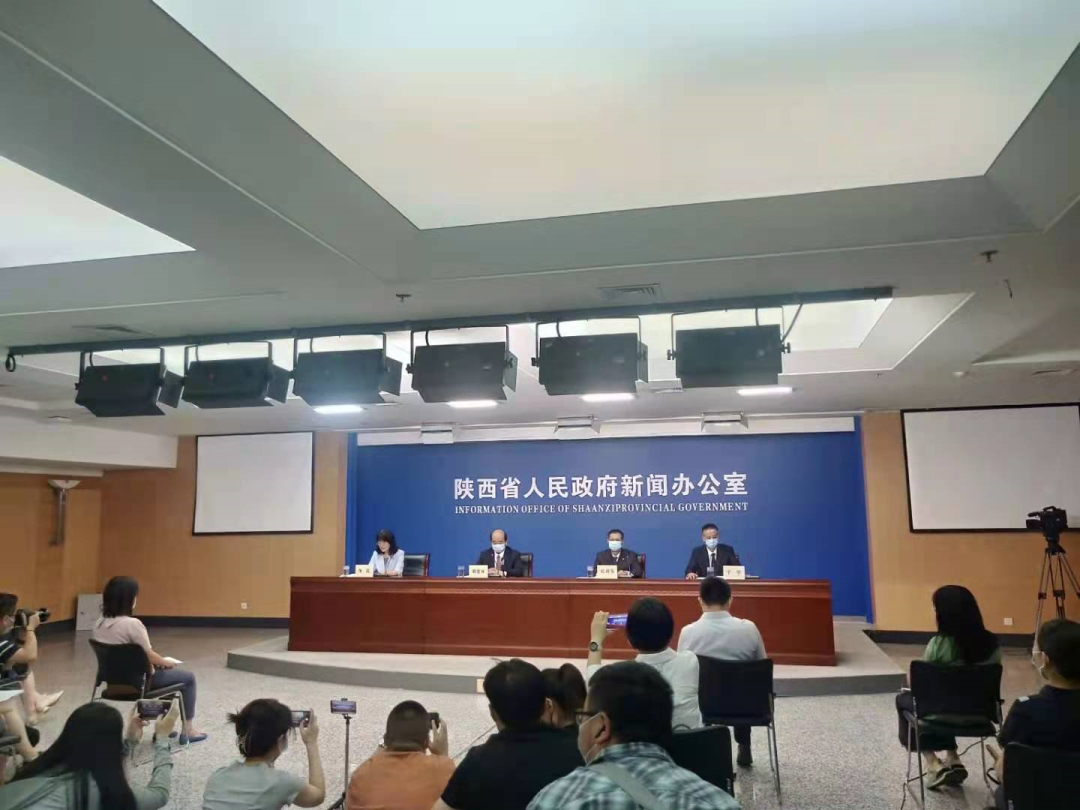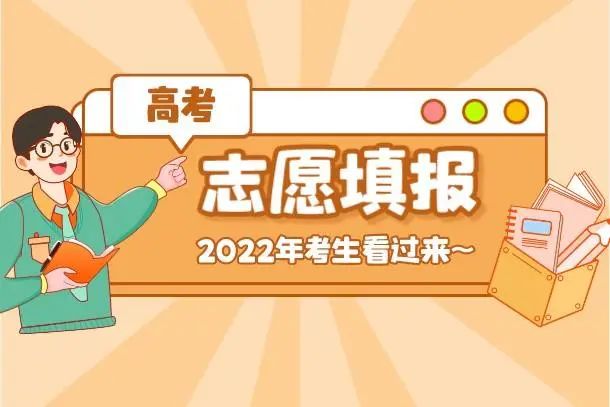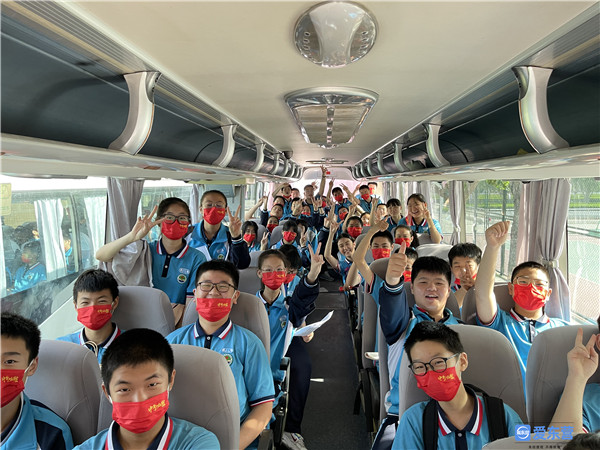The comprehensive reform plan of the college entrance examination of Shaanxi Province is released!Implement the "3+1+2" mode!Starting from these students →
Author:Xi'an Daily Time:2022.06.28

June 27 morning
The Shaanxi Provincial Government News Office is held
Press conference on the implementation plan for comprehensive reform of the college entrance examination of Shaanxi Province
The reporter was informed that June 22
Provincial government printed and issued
"Shaanxi Province Deepen the Admissions of General College Examinations
Comprehensive Reform Implementation Plan "
(Referred to as "Implementation Plan")
It marks the full start of the comprehensive reform of the college entrance examination of our province
At the meeting, the relevant situation of the "Implementation Plan" in our province was briefly introduced

At the meeting, the "Implementation Plan" is divided into three parts: the overall requirements, main tasks and security measures.
The comprehensive reform of the college entrance examination of our province was fully launched in 2022, and the overall implementation was implemented in 2025. Answer the key questions such as "What to test", "How to test" and "how to recruit".
Breaking the traditional "fixed combination" test mode of the traditional liberal arts and sciences, giving students more "optional rights".
The model of admission to students based on the unified college entrance examination results is changed, and the enrollment mode of "two basis and one reference" is changed.
It broke through a single college entrance examination admission path and transformed into the enrollment mode of "classification examination, comprehensive evaluation, and multiple admission".
There are four main aspects of the reform of the "Implementation Plan"
Improve the general high school academic level examination system
The first is to clarify the type and basis of the examination.
Starting from the first grade students who enrolled in the fall of 2022, the academic level exams are divided into qualification examinations and selective exams. The qualified test score is the main basis for the graduation of ordinary high school students and the same academic ability of high school. It is also one of the basis for the enrollment admission of classified examinations for higher vocational colleges. Selective test results are an important basis for college admission to unified college entrance examination candidates.
The second is to clarify the test objects and subjects.
Ordinary high school students must take the qualification examination. High school students and social personnel in high school education can also take the qualification examination. The qualified examination subjects include 14 subjects set by the national general high school curriculum plan. Selective examination subjects include 6 subjects including ideological and political, history, geography, physics, chemistry, and biology. Based on their own interests, aspirations, advantages, and college admissions professional selection subjects, students prefer 1 subject in historical and physical subjects, and select 2 subjects in the remaining 4 subjects to participate in selective exams. The qualified test scores are qualified to take the selective test of its corresponding subjects.
The third is to clarify the examination organization and scores.
Organize the qualification test once a year, and the scores of the qualified examination subjects are presented with "qualification/unqualified" and grade. The selective exam is organized once a year, and the time arrangement is performed after the unified college entrance examination subjects are completed. The results are valid for the year.
Improve the comprehensive quality evaluation system for ordinary high school students
The "Implementation Plan" puts forward clear requirements for further regulating the comprehensive quality evaluation of ordinary high school students. The evaluation content mainly includes five aspects: ideological morality, academic level, physical and mental health, artistic literacy, labor and social practice. Ordinary high school schools rely on the electronic platform to see the truth and fairly record the development of students' comprehensive quality and individual expertise, and provide a reference for the admissions of colleges and universities.
Deepen the reform of admission enrollment of ordinary colleges and universities
The first is to clarify the unified college entrance examination subjects.
Our province implements the "3+1+2" model.
"3" is a unified college entrance examination subject: 3 doors of Chinese, mathematics, and foreign languages
"1" and "2" are selective test subjects:
Among them, "1" refers
"2" refers to the selection of 2 and re -selected subjects from ideological politics, geography, chemistry, and biology
The second is to clarify the total results of the candidates.
Candidates' total scores are composed of 3 unified college entrance examination results and 3 general high school academic level selective examination results, with a score of 750 points. Among them, the three unified college entrance examination subjects were included in the total score of the candidates with the original score, and each score of 150 points; the preferred subject (physical or historical) in the selective exam was included in the total score of the candidate, and each door was 100 points. The subject scores the total score of the candidates according to the level, each with a full score of 100 points.
The third is to clarify the enrollment method.
Since 2025, in addition to the early batch, the two batches of the books and colleges have been admitted. The enrollment of ordinary colleges and universities is listed in the two types of enrollment plans, separate lines, and submits separately according to the combination of physical subjects and historical subject combinations.
Further improve the recruitment of classification examinations of higher vocational colleges
The examination enrollment of higher vocational colleges is relative to ordinary universities, and the "cultural quality+vocational skills" evaluation method is implemented. Clarify the evaluation and admission methods of ordinary high school graduates, graduates of secondary vocational schools, and social personnel with the same academic power of high schools, improve the training model of recruiting five -year high vocational colleges from junior high school graduates, and build secondary vocational education and specialized level occupations Education's modern vocational education system.
At the meeting, the background and process of the "Implementation Plan" were also introduced.

Provincial Education Examination Institute reminds: early batch, single undergraduate batches, undergraduate batch,
Ordinary college vocational education enrolled separately (including college) Volunteer Volunteer on June 27th 12:00 reports
Our province's 2022 college entrance examination reported volunteer points in three stages: advance batch (including literature and history, science and engineering specialties, art specialties and sports specialists), single undergraduate batches, undergraduate batch, ordinary college vocational education separate enrollment enrollment separately enrollment enrollment separately (Including college) Volunteers are filled in at 12:00 from 12:00 to June 27th on June 24th; the second batch of undergraduate volunteers will be filled in after a batch of undergraduate admission; Essence On the morning of June 27, the Provincial Education Examination Institute reminded candidates to pay attention to the time of voluntary reporting. A total of 5 batches are set up in the admissions of ordinary universities in our province: early batch, single undergraduate batches, undergraduate batch, second batch of undergraduate, and vocational (college) batches.
The batches and types of the implementation of a parallel volunteer model are: art undergraduate B, art specialist section A, sports, single undergraduate batches, undergraduate batch, second batch of undergraduate, second batch of undergraduate) batch. The batch and types of the implementation of gradient volunteer models are: early batch of cultural history, science and engineering, art undergraduate A, C -section C, art specialty, and other special types of enrollment.
Participate in the cultural history, science and engineering colleges and colleges and colleges including military, public security undergraduate, judicial undergraduate, Chinese fire rescue college; free medical orientation; national key Marxist colleges; Excellent teacher targeted training special plan (hereinafter referred to as excellent teachers); public -funded teachers; comprehensive evaluation of admissions and other approved undergraduate universities and majors, divided into three sections of A, B, and C, the admission of the submission in three sections is carried out in order. After the submission is admitted, the plan is not completed to solicit volunteers.
Early batch of literature and history, science and engineering undergraduate A section A is military colleges, public security undergraduate majors, undergraduate majors, and Chinese fire rescue colleges. One college volunteer is set up, and 3 professional volunteers are set up in each college.
The B -section B section B in advance is free medical orientation. There are two colleges and universities, and 3 professional volunteers are set up in each college.
The C -section C -section of the undergraduate of science and engineering in advance is the undergraduate colleges and majors with special requirements except the above A and B sections. There are two colleges and universities, and 3 professional volunteers are set up in each college.
Participate in the cultural history and science and engineering specialties that are admitted in advance include public security high vocational (specialist) majors, orientation training sergeants and navigation majors. There are 3 colleges and universities, and 3 professional volunteers are set up in each college.
After batching the professional volunteers of the literature and history and all institutions of science and engineering in advance, there is a "willing to accept other majors" to adjust the expression bar.
Art majors participate in advance batch admission.
Art undergraduate volunteers are filled in the three sections of A, B, and C in the "British British Art undergraduate" column.
The art professional volunteer in the specialty special specialty is reported in the special column before the art undergraduate A. set up two colleges and universities to volunteer, each college has 3 professional volunteers, and set up a "willing to accept other majors" adjustment form. Essence
Paragraph A section A of the Arts Category is an independent establishment of an undergraduate undergraduate major in the art college approved by the Ministry of Education. Let's set the "willing to accept other majors" adjustment column.
Art undergraduate B is an art undergraduate major in the provincial institutions (excluding part of the independent undergraduate art colleges set by the Ministry of Education), as well as the art undergraduate majors (in the art college abroad to apply for participation in the admission of this paragraph (in Shaanxi admission rules must be consistent with the admission rules of the provincial institutions stipulated in our province), set up nine colleges and universities, and the order order is A, B, C, D, F, G, H, I There are a professional volunteer, no college and professional adjustment form.
In order to participate in all other art undergraduate colleges and majors in other art undergraduate colleges and majors except for the admission of art undergraduate A and B, two colleges and universities have a volunteer. Professional adjustment formula.
The vocational (specialist) of art (specialist) volunteer reported in the "early batch of art specialty" column, divided into two sections of A and B.
Artist A section A is a specialty specialty in the provincial institutions, and the art specialty specialty of applying for participation in the admission of this paragraph (admission rules must be consistent with the admission rules of the provinces stipulated in our province), set up Nine colleges are volunteer, and the order of arrangement is A, B, C, D, E, F, G, H, and I. Each college has a professional volunteer, and there is no college and professional adjustment.
In order to participate in all other art specialists except for participating in the art specialist A specialist, there are two colleges and universities in order to participate in the admission of art specialist sections A. Each college has a professional volunteer, and there is no college and professional adjustment.
Sports majors participate in advance batch admission.
Sports professional volunteers in the specialty specialty are reported to the special column before the undergraduate of sports, set up 1 college volunteer, 3 professional volunteers, and set a "willing to accept other majors" adjustment form.
Sports undergraduate volunteers are reported in the "Early Batch Sports Undergraduate" column. Set up 6 colleges and universities, the order of arrangement is A, B, C, D, E, and F. Each college has 3 professional volunteers, and at the same time, there is a adjustable expression bar with "willing to accept other majors".
Sports specialty volunteers are reported in the "Early Batch Sports Specialty" column. Set up 6 colleges and universities, the order of arrangement is A, B, C, D, E, and F. Each college has 3 professional volunteers, and at the same time, there is a adjustable expression bar with "willing to accept other majors". Arts and sports candidates must not be reported to the literature and history or science and engineering volunteers in the early batch. They can also report volunteers in other batches. Art (text) candidates can also report the volunteers of literature and history. Volunteers of the work of the work.
Candidates and science and engineering candidates shall not report to other subjects.
The national special plan and local special plan participation in a single set of undergraduate batch admission. implement. Single undergraduate batches are divided into two sections of A and B, sections A are national special plans, and sections B are local special plans.
The national special plan sets up to 6 colleges and universities, and the order of the arrangement is A, B, C, D, E, and F. Each college has 6 professional volunteers, and at the same time, there is a "willing to accept other majors" adjustment form.
The local special plan sets up 4 colleges and universities, and the order of the arrangement is A, B, C, and D. Each college has 6 professional volunteers. At the same time, there is a adjustable expression bar with "willing to accept other majors".
Candidates apply for undergraduate batches to perform undergraduate batches shall be implemented in accordance with relevant documents. Candidates who are qualified by the county -level recruitment committee can fill in the volunteer of this batch. After the batch of admission is over, the Provincial Education Examination Institute will publicize the list of candidates. If there are violations such as reporting and having qualifications, such as fraudulent qualifications, the disqualification of admission is canceled, and the responsibility of relevant personnel is seriously investigated.
A batch of undergraduates set up 6 colleges and universities, and the order of arrangement is A, B, C, D, E, and F. Each college has 6 professional volunteers.
Text/Figure: Ren Na, a reporter from Xi'an Newspaper Industry
Edit: MIA
Review: Peng Peng, Wenyue
Produced: Xi'an Newspaper Media Group
Xi'an Newspaper · Xi'an Daily Copyright
No reprinting, plagiarism, and extract without permission
- END -
The college entrance examination of the "Camp" | Battle for dreams

On the morning of June 15th, candidates from the Municipal Experimental Middle Sch...
Central North University held the 2022 young teacher teaching competition
In order to improve the teaching ability and business level of young teachers and further promote the improvement of the quality of education and teaching in schools. At the same time, the selection o